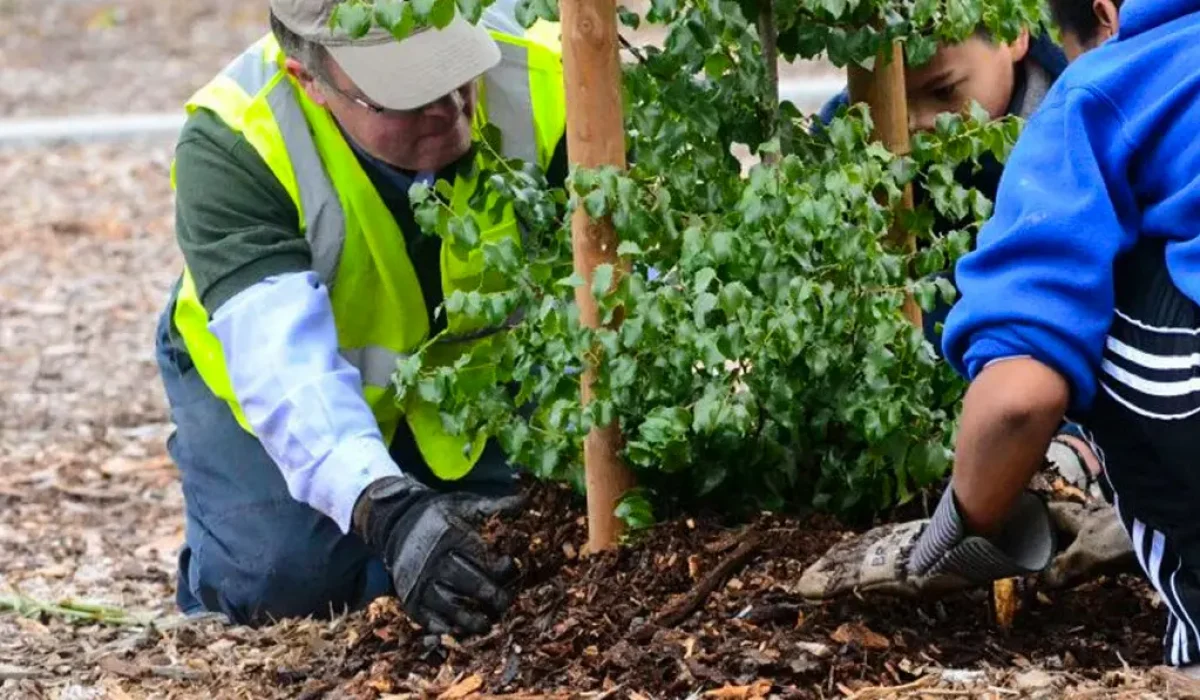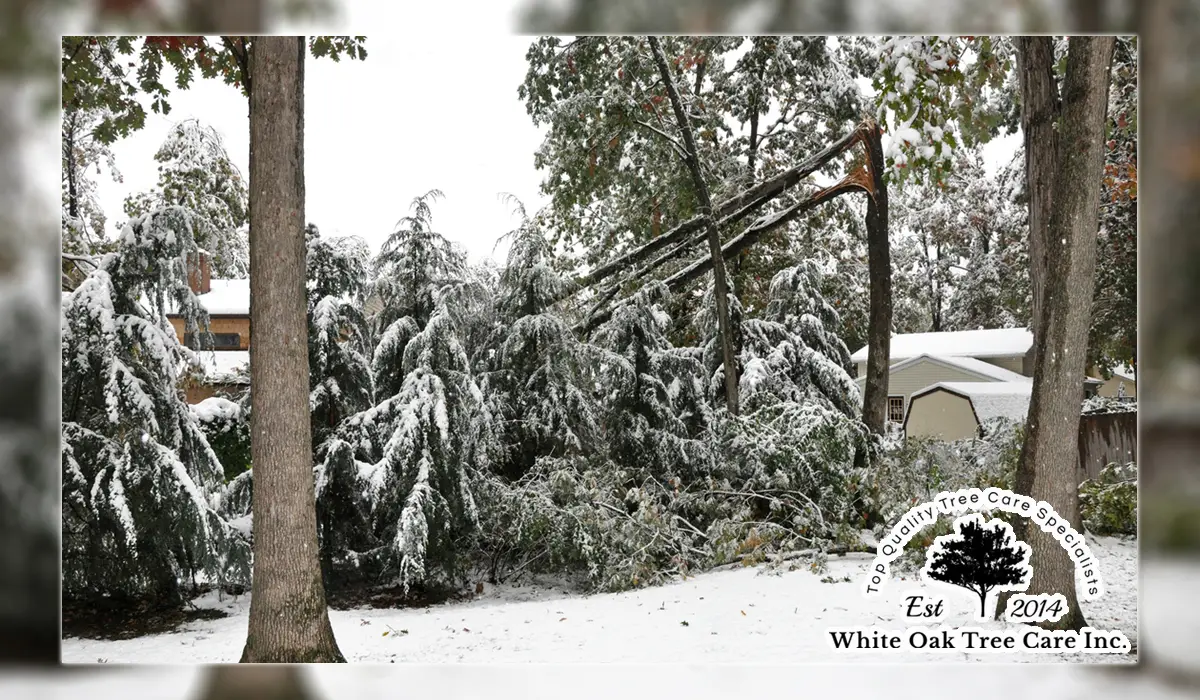
Critical Signs You Need Tree Treatment in West Chicago, IL
How Professional Tree Treatment Protects Your West Chicago Landscape
It’s important to keep the trees and bushes around your house in excellent health for safety, looks, and long-term property value. In areas like West Chicago, IL, where harsh weather and other environmental factors can significantly stress trees, it’s crucial to closely monitor their health. If neglected, unhealthy trees can turn dangerous and result in costly property damage.
This guide highlights the key warning signs that indicate it needs tree treatment in West Chicago, IL, along with helpful insights to keep your landscape thriving. With over 8 years of experience, White Oak Tree Care Inc. has been a trusted provider of tree care services.
Key Indicators Your Tree May Need Attention
1. Unusual Leaf Patterns
Trees rely on their leaves to absorb sunlight and produce nutrients through photosynthesis. When something is wrong, the leaves often show the first signs. Here are a few key leaf symptoms to watch for:
- Early Leaf Drop: If your tree begins shedding leaves in spring or summer, it could indicate environmental stress or a disease. Healthy trees should retain their leaves until fall.
- Color Changes: Yellowing, browning, or black spots on leaves may point to poor soil, lack of nutrients, or fungal infections, such as anthracnose.
- Wilting or Curling: Leaves that are wilting or curling might signal dehydration, root damage, or issues with water flow in the plant.
Studies show that up to 80% of tree diseases first manifest in the foliage. If you notice any of these signs, it’s crucial to act quickly to prevent the issue from worsening.
2. Cracks or Splits in Bark
The bark is the outer protective layer of a tree, acting like human skin. When it cracks or splits, it can expose the inner wood to pests and diseases. Common issues to watch for include:
- Sunscald: Rapid temperature fluctuations, especially during cold winters and sunny days, can cause cracks in the bark.
- Pest Damage: Tiny holes, frass (wood dust), or sticky residue could be signs of insect infestations like the emerald ash borer.
Cracked bark not only invites disease and pest infiltration but can also weaken the tree, reducing its structural integrity. Bark damage can decrease a tree’s stability by as much as 40%, making it more prone to failure during storms.
3. Dead or Weak Branches
Weak or dead branches are often an early sign that a tree is struggling. Common causes include:
- Diseases: Fungal infections, such as Dutch elm disease, can make branches brittle and susceptible to breakage.
- Environmental Stress: Heavy winds, snow, or ice may cause branches to crack or break, signaling that your tree is under stress.
Dead branches not only pose safety risks but also signal that the tree may need professional tree treatment to address underlying issues and restore its health. Studies have shown that falling branches are one of the leading causes of property damage, with an estimated annual loss of $1 billion in the U.S.
4. Signs of Fungi or Pests
Both fungi and pests can severely harm trees. Keep an eye out for:
- Mushrooms or Fungal Growth: These are often indicators of decay inside the tree. Fungi like Armillaria can rapidly cause rot in the roots or trunk.
- Insect Activity: Small holes, sap oozing from the tree, or webs around branches could suggest an insect infestation, such as borers or caterpillars.
Premier tree experts emphasize that unusual leaf behavior often points to broader health issues. Studies show that up to 80% of tree diseases first manifest in the foliage, making it crucial to act quickly when these signs appear.
5. Abnormal Growth
Trees under stress often exhibit abnormal growth patterns. Watch for:
- Water Sprouts and Suckers: These are fast-growing, weak shoots that can be a response to disease, overpruning, or root damage.
- Uneven Canopy: A tree with uneven growth or sparse foliage may have root issues or poor soil conditions.
Proper maintenance, including tree pruning West Chicago, IL, can help manage these abnormal growth patterns effectively. Pruning redirects energy to healthier parts of the plant and ensures balanced development.

Environmental Stress Factors for Trees in West Chicago, IL
West Chicago’s weather and soil conditions can impose significant stress on trees. Recognizing these environmental factors will help you better understand why your tree might need attention and how to address it.
1. Seasonal Temperature Extremes
The Midwest experiences harsh winters and hot summers, which can cause stress for your trees. Extreme temperature swings can:
- Frost Cracks: Rapid temperature changes may lead to cracks in the bark, especially during freezing nights followed by sunny days.
- Root Dehydration: Inconsistent watering and summer heat can dry out the roots, making it harder for the tree to absorb nutrients.
The temperature fluctuations in West Chicago are extreme, with winter lows reaching -20°F and summer highs often exceeding 90°F. These conditions can significantly impact tree health, making timely tree treatment an essential part of maintaining a healthy landscape.
2. Compacted Soil
In urban areas, soil can become compacted due to foot traffic, construction, and heavy machinery. Compacted soil can:
- Restrict Root Growth: Roots cannot spread and access the necessary nutrients.
- Reduce Drainage: Poor drainage can lead to waterlogged soil, causing root rot or dehydration.
According to the UMN, compacted soil can reduce root growth by up to 70%, which can dramatically shorten a tree’s lifespan.
3. Excessive Rainfall or Drought
West Chicago receives around 38 inches of rainfall annually, but this can be uneven. Both excessive moisture and drought periods can harm trees:
- Too Much Rain: Overwatering or prolonged rain can saturate the soil, leading to root rot and fungal growth.
- Drought: Extended dry periods can cause dehydration, particularly for shallow-rooted or young trees.
We can help mitigate these issues by maintaining proper soil drainage and ensuring appropriate tree watering.
4. Urban Heat Island Effect
West Chicago, like many urban areas, experiences higher temperatures due to asphalt and concrete surfaces absorbing and radiating heat. This:
- Increases Water Loss: Faster evaporation can lead to dehydration for your trees.
- Adds Stress: Prolonged exposure to excessive heat can make trees more vulnerable to pests and diseases.
Urban heat islands have the potential to elevate local temperatures by up to 10°F, thereby intensifying plant stress. Timely tree treatment can help mitigate the effects of these temperature extremes, ensuring your trees remain healthy and resilient despite challenging conditions.
5. Pests and Diseases
The local environment in West Chicago also supports various pests and diseases, which can be particularly harmful to stressed trees. Some common threats include:
- Emerald Ash Borer: This invasive insect has devastated ash trees throughout Illinois.
- Dutch Elm Disease: A fungal infection that spreads rapidly, killing trees in its path.
Practical Tree Treatment Tips to Manage Stress Factors
While trees face many stress factors in West Chicago, there are several practical ways you can help them thrive:
- Amend the Soil: Add organic matter, such as compost, to improve soil structure and nutrient levels.
- Water Deeply and Strategically: Encourage deep root growth by watering deeply, particularly during dry spells.
- Use Mulch: Apply a 2-4 inch layer of organic mulch around tree bases to retain moisture and protect roots.
- Prune Regularly: Remove dead or diseased branches to reduce stress and promote healthier growth.
- Monitor for Pests and Diseases: If your tree shows advanced signs of stress or damage, it’s time to call a tree doctor in West Chicago, IL. Certified experts can diagnose problems, provide tailored solutions, and ensure your trees stay healthy for years to come.
Protect Your Property with Professional Tree Treatment
Healthy trees are an invaluable asset to any home, but they require attention and care to thrive. By recognizing signs like unusual leaf patterns, bark damage, or pest infestations early, you can prevent major issues and keep your landscape looking beautiful.
For trusted tree care services in West Chicago, IL, contact White Oak Tree Care Inc. Our team of experts is here to provide the treatment your trees need to stay healthy and strong. Take advantage of our coupons and schedule a consultation today by calling (630) 520-2690 or requesting a quote online.








 Powered by
Powered by